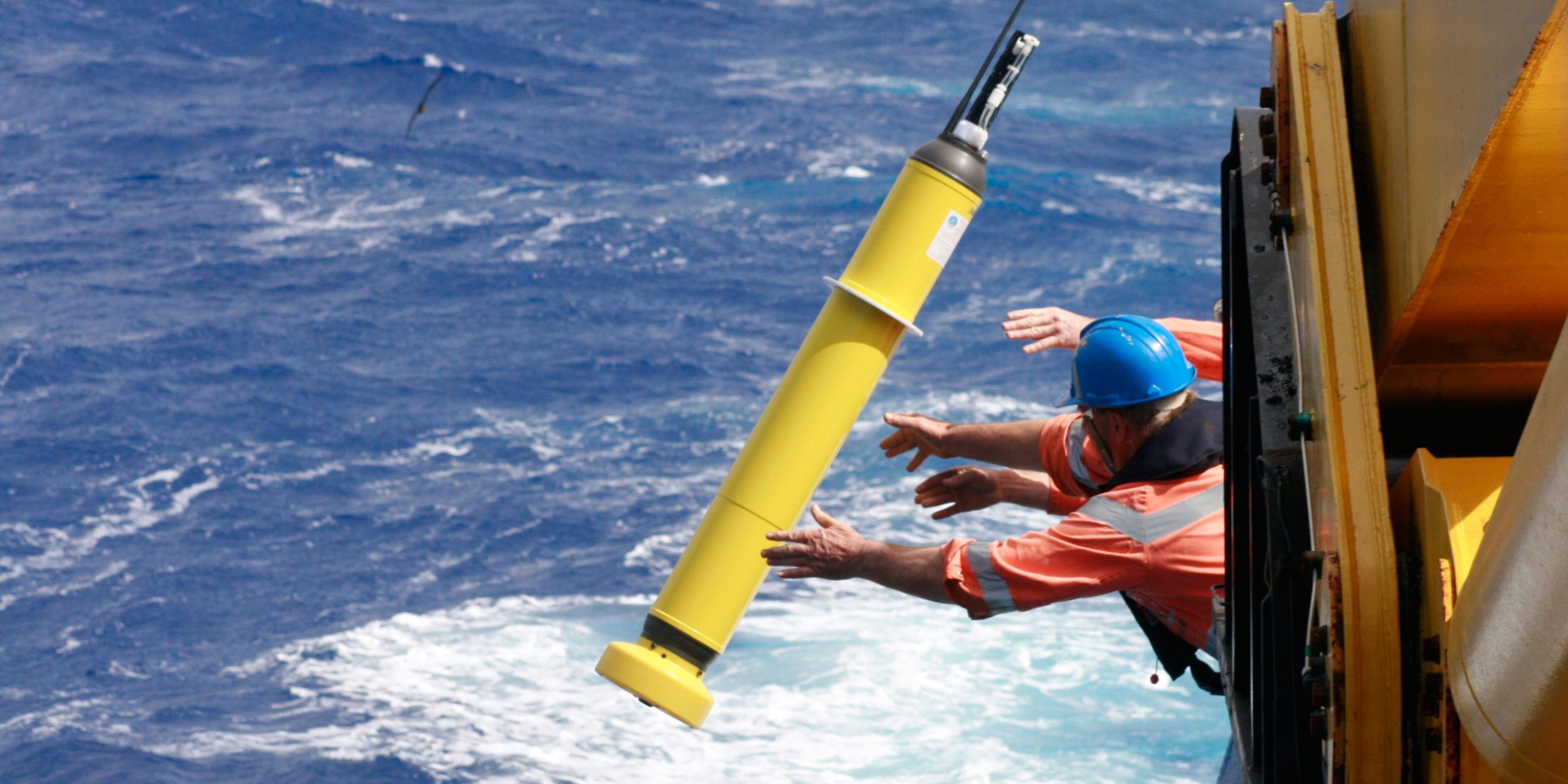Three papers funded by CPO’s Climate Observation Division (a Review Article, Perspective, and Correspondence) appeared in the February Issue of Nature Climate Change addressing monitoring and understanding the Earth’s Energy Imbalance.
 The three papers address the need to observe and understand Ocean Heat Content, the primary tool today being the global Argo array of profiling floats. The 0-2,000 meter (the current limit of Argo) ocean heat anomaly pattern features an intensifying hemispheric asymmetry with 75-99 percent of the heat accumulating south of the Equator, predominately in the 30°S-50°S latitude band.
The three papers address the need to observe and understand Ocean Heat Content, the primary tool today being the global Argo array of profiling floats. The 0-2,000 meter (the current limit of Argo) ocean heat anomaly pattern features an intensifying hemispheric asymmetry with 75-99 percent of the heat accumulating south of the Equator, predominately in the 30°S-50°S latitude band.
The Argo Program, with is short but growing record and its near-global and expanding areal and depth coverage, provides the observational foundation for tracking and understanding the ocean’s role in the planetary energy balance.
“Ultimately, in order to increase our ability to predict climate and develop mitigation strategies, it is imperative to track the Earth’s Energy Imbalance (EEI),” said the conclusion of one of the papers. “To achieve the highest possible spatio-temporal resolution, we must combine satellite measurements of EEI from Top of the Atmosphere radiation measurements with estimates of the absolute value of EEI derived from the time-derivative of Ocean Heat Content. To meet this goal future priorities must include the sustained continuation of the global ocean hydrographic observing system and its extension into polar regions, marginal seas and the deep oceans below 2,000 m depth.”
The continuing growth and improving quality, as well as the sustained implementation of Argo, are critical elements of the international climate observation strategy.
Access the papers at:
http://www.nature.com/nclimate/journal/v6/n2/full/nclimate2876.html
http://www.nature.com/nclimate/journal/v6/n2/full/nclimate2872.html
http://www.nature.com/nclimate/journal/v6/n2/full/nclimate2924.html




Climate Program Office
Advancing scientific understanding of climate, improving society’s ability to plan and respond






Climate Program Office
Advancing scientific understanding of climate, improving society’s ability to plan and respond
Scroll to Top

